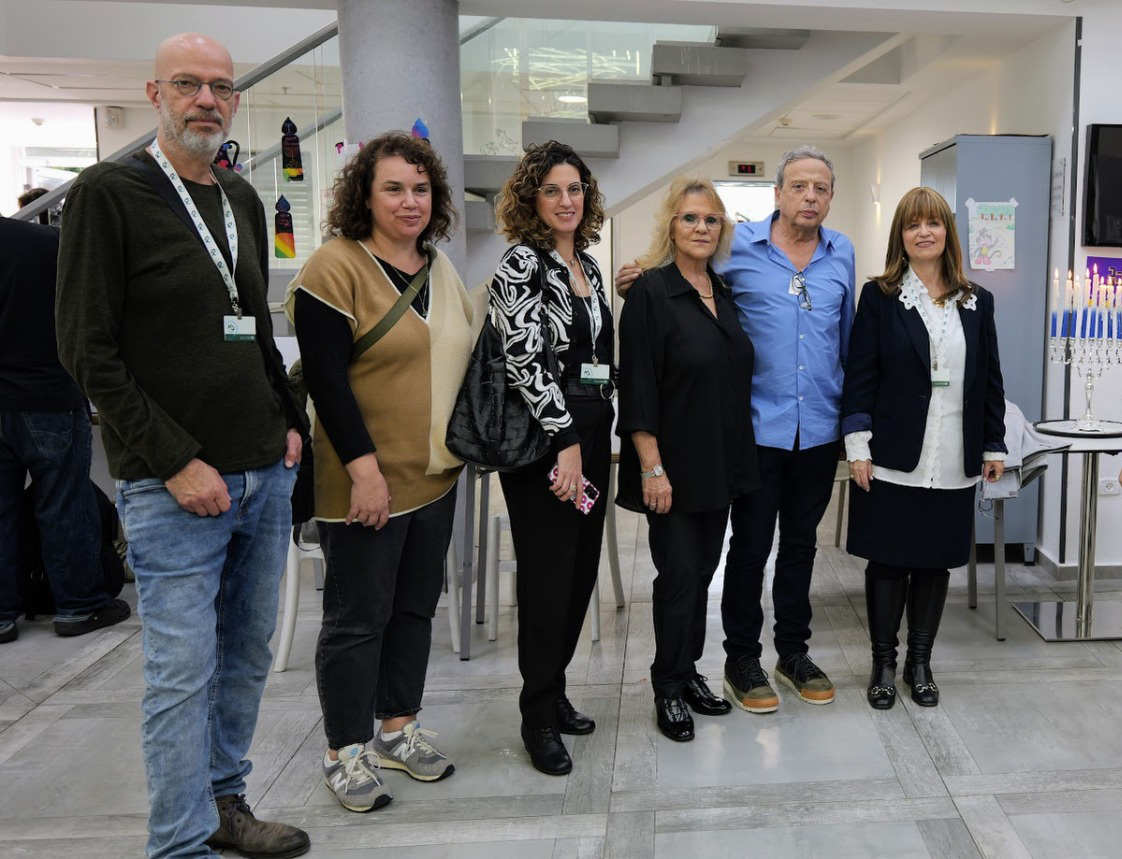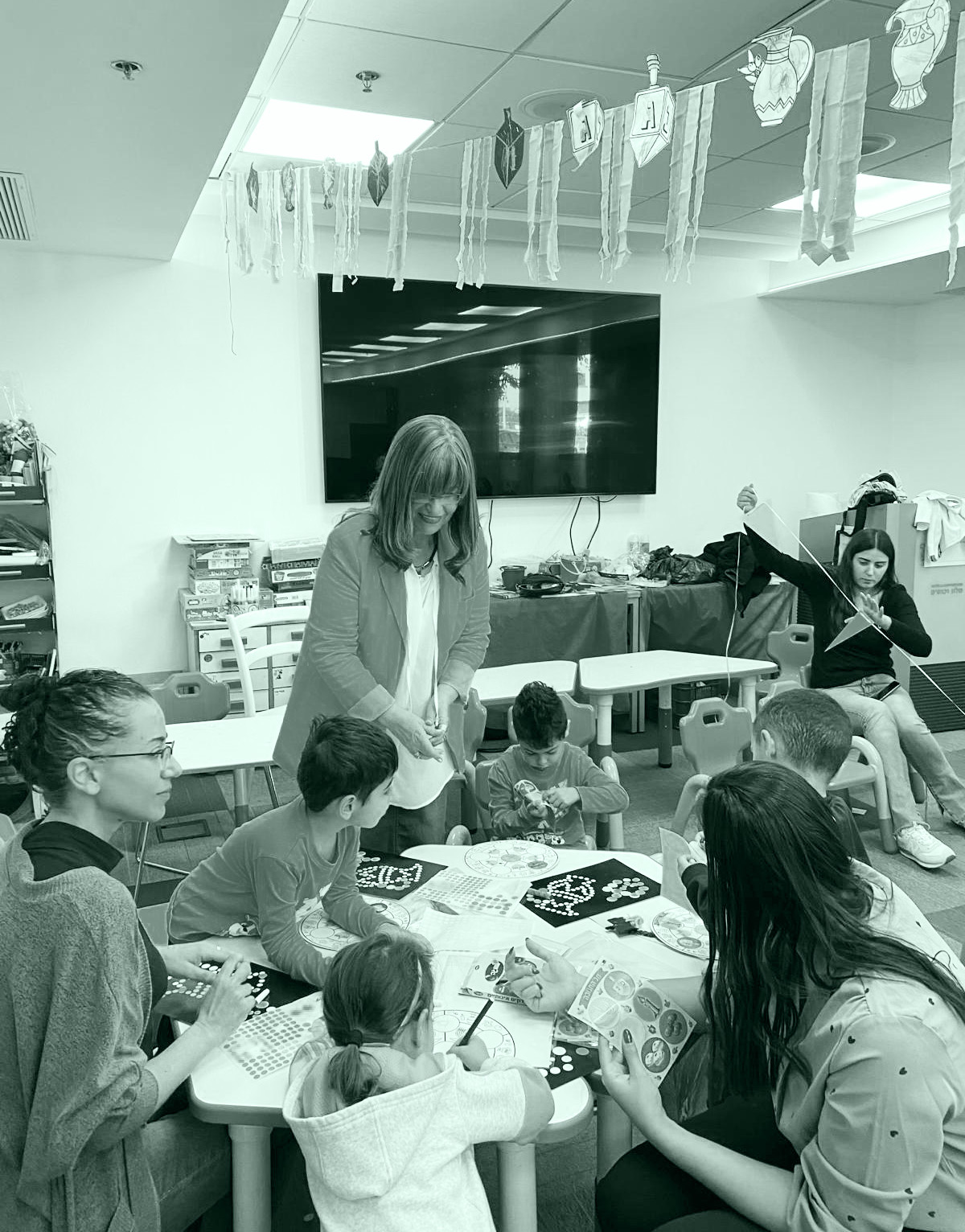Prof. Zehavit Gross, dean of the Faculty of Education, with staff members of the Kfar Maccabiah school for wartime evacuees
The Faculty of Education
Learning to Heal
The Faculty of Education’s emphasis on social-emotional learning was put to the test in a school it co-created for evacuees of devastated Gaza-border communities. And according to both students and their parents, it passed with flying colors.
It Takes a Village
In the days after the Hamas attack on October 7th, evacuees from towns near the Gaza strip arrived in hotels throughout the country, many near Ramat Gan. When Dean of the Faculty of Education Prof. Zehavit Gross first heard of their emotional state—“They were so traumatized, they refused to leave their rooms,” she recalls—she saw an opportunity to apply the faculty’s expertise to an urgent need. “Our faculty flips universities’ traditional model on its head, making community engagement the basis for our teaching and research,” Gross explains. “This approach ensures that what we do in the classroom is deeply relevant. And it also made us the ideal entity to help survivors learn to heal.”
In keeping with Bar-Ilan’s emphasis on collaboration, the faculty approached the Ramat Gan Municipality with a proposal to create a K-12 school for local evacuees. The municipality recruited its Kfar Maccabiah Hotel, a project of Maccabi World Union, to provide the physical space, and the Ministry of Education agreed to provide a principal and administrative management. “We all understood how critical it was to get survivors into a regular routine, since routine is a key component of recovery,” says Gross. “By working together, and with the financial support of Maccabi World Union’s generous donors, we four partners were able to open the school within a week, replete with a full daily schedule of morning classes and afternoon activities.”

And with a full staff, as well: Faculty of Education lecturers and their graduate students were the school’s teachers, since “we wanted not only the level of instruction to be the highest, but also the level of commitment, since consistency is essential for rebuilding trust in the world,” Gross says. Because the scope and intensity of their instruction fulfilled the requirements for accreditation, faculty graduate students earned their teaching certificates; they also came away with new questions and answers for their research. But most of all, insists Gross, they gained valuable experience meeting the needs of learners, not only academically, but in the social and emotional realms. “Faculty students were constantly experimenting, constantly inventing new ways to engage students. It was proof positive that our faculty’s emphasis on cultivating the social skills, emotional expression, and behaviors and values that help students learn effectively really works.”
It was also the proof that parents needed to trust in the school—and in life again. “We knew that we were succeeding when parents, most of whom were afraid to leave their children’s side for weeks after October 7th, began simply to give them a hug and drop them off,” concludes Gross, who herself gave parents a weekly class on the Torah portion that became a source of inspiration and stability. “We created this school to help our family heal, and we learned that as a village, we can do most anything.”

“We wanted not only the level of instruction to be the highest, but also the level of commitment, since consistency is essential for rebuilding trust in the world.”